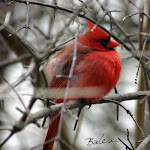
"In his essay 'On Transience' (1916) Sigmund Freud recalled a walk he took in the Dolomite Mountains with the poet Ranier Maria Rilke. It was an exquisite summer's day; the flowers were in bloom and brightly coloured butterflies danced above the meadows. The psychoanalyst was glad to be outdoors (it had been raining all week), but his companion walked with his head bowed, his eyes fixed on the ground, and remained taciturn throughout the excursion. It wasn't that Rilke was oblivious to the beauty around him, he simply could not overlook how impermanent everything was. In Freud's words, he was unable to forget 'that all this beauty was fated to extinction, that it would vanish when winter came, like all human beauty and all the beauty that men have created or may create.'"
"Freud was unsympathetic, for him, the capacity to love anything attractive, however fragile it might be, was a hallmark of psychological health. But Rilke's stance, though inconvenient, helpfully emphasises how it can be those most in thrall to beauty who will be especially aware of, and saddened by, its ephemeral character."
- From "The Architecture of Happiness" by Alain de Botton
And yesterday, we were reminded that even winter can be beautiful, although just as ephemeral.
•



































































No comments:
Post a Comment